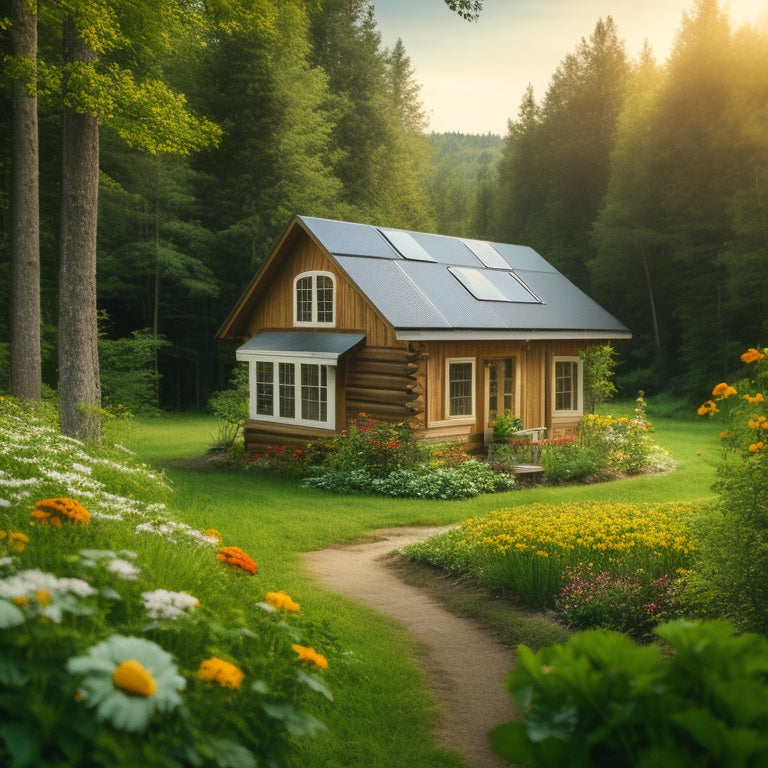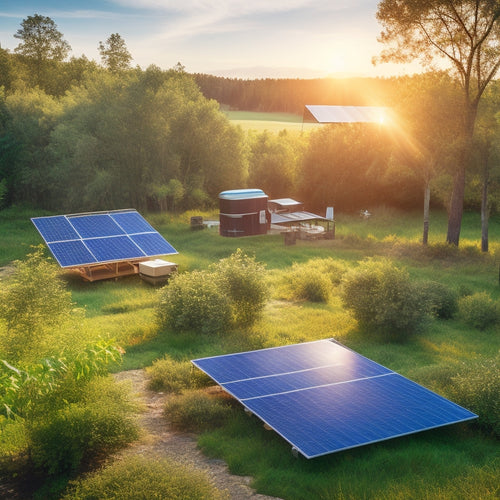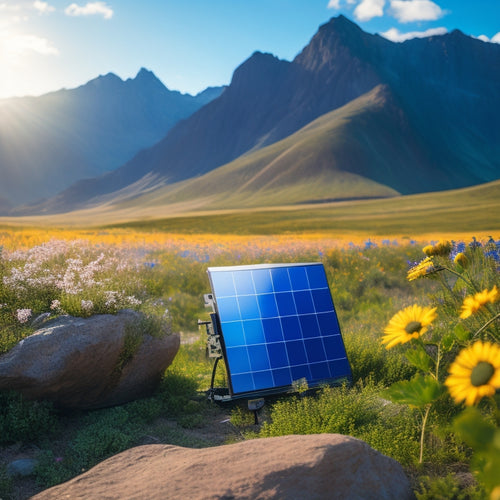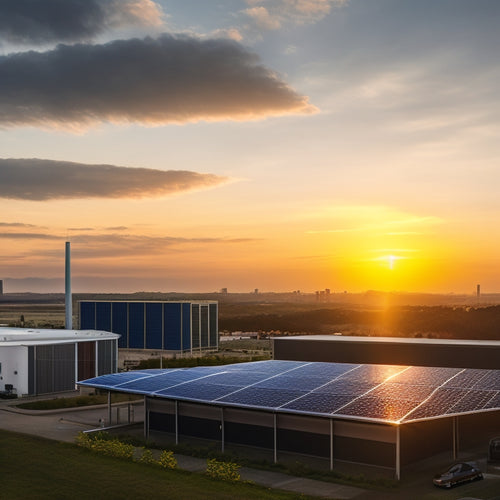
3 Steps to Off-Grid Home Freedom
Share
You're taking the first step towards breaking free from the grid and embracing energy independence. To get started, you'll need to assess your daily energy needs, identifying essential appliances and making lifestyle adjustments to reduce consumption. Next, choose the right off-grid energy system for you, whether it's solar, wind, or a combination, and investigate battery storage options. Finally, guarantee a smooth changeover by properly installing and maintaining your systems. By following these three steps, you'll be well on your way to enjoying the freedom and sustainability that comes with off-grid living - and there's more to uncover.
Key Takeaways
- Assess your daily energy needs to determine the required power generation capacity for off-grid freedom.
- Choose the right energy system, such as solar or wind power, based on your location and energy requirements.
- Install and maintain your chosen system properly to ensure peak performance, longevity, and energy independence.
- Implement energy efficiency measures, like LED lighting and energy-efficient appliances, to reduce consumption.
- Regularly monitor and adjust your energy production and consumption to minimize energy loss and maximize savings.
Assess Your Energy Needs
Before you start building your off-grid home, take a step back and assess your energy needs.
You'll want to calculate your daily energy consumption to determine how much power you'll need to generate. Consider your lifestyle and the appliances you can't live without.
Will you need to power a refrigerator, lights, and computers, or can you make do with simpler amenities? Be honest about your energy usage and identify areas where you can make lifestyle adjustments.
This might mean switching to energy-efficient appliances, reducing your energy consumption, or adopting new habits.
To get an accurate calculation, conduct an energy audit to determine your daily energy consumption in watt-hours (Wh) and list all appliances and devices to power, noting wattage ratings from manufacturer labels.
Choose Your Energy Systems
Now that you've got a clear image of your energy needs, it's time to select the energy systems that will power your off-grid home. You've got several options to evaluate, each with its pros and cons.
Off-grid solar systems with high-efficiency panels provide reliable renewable energy for remote areas grid independence, making them a popular choice. Additionally, a strong battery bank, charge controller, and inverter are essential for seamless energy flow.
Here are four key energy systems to investigate:
-
Solar Panels: Capture the sun's energy to generate electricity, ideal for homes with ample sunlight.
-
Wind Turbines: Convert wind energy into power, suitable for areas with consistent wind patterns.
-
Battery Storage: Store excess energy generated by your systems for later use, ensuring a steady supply.
- Energy Efficiency: Implement measures to reduce your energy consumption, such as LED lighting and energy-efficient appliances.
Install and Maintain Freedom
With your energy systems chosen, it's time to bring your off-grid home to life by installing and maintaining these essential components.
You'll need to guarantee that all systems are properly installed, connected, and configured to work together seamlessly. Regular maintenance is vital to guarantee peak performance, energy efficiency, and longevity of your systems, which includes monitoring energy production and consumption to minimize energy loss.
This also involves inspecting and cleaning solar panels to maximize energy production per unit area. By doing so, you'll enjoy energy independence and sustainable living, free from the grid's constraints.
Frequently Asked Questions
Can I Still Use My Existing Appliances With Off-Grid Energy Systems?
You'll find that many modern appliances are designed with solar compatibility in mind, so you can often use them with off-grid energy systems, but you'll need to prioritize energy efficiency to guarantee a seamless changeover.
How Do I Handle Sewage and Wastewater Disposal Off-Grid?
You'll need to tackle sewage and wastewater disposal off-grid by considering composting toilets, which turn waste into fertilizer, and greywater systems that reuse water for irrigation, making your off-grid life more sustainable and eco-friendly.
Are Off-Grid Homes More Prone to Fires and Electrical Hazards?
Are you playing with fire by going off-grid? Not if you're proactive! You'll be safer than most if you prioritize fire safety and stay on top of electrical maintenance - vigilance is key to avoiding hazards in your new setup.
Can I Connect to the Grid in the Future if Needed?
You can always connect to the grid in the future if needed, as your off-grid system is designed to be adaptable for future upgrades, making a seamless grid connection possible when the time comes.
Will I Need Special Permits or Licenses to Live Off-Grid?
As you venture into the wild, you'll need to tame the beast of bureaucracy, ensuring you've got the necessary permits and licenses to live off-grid, which often depend on local regulations and zoning laws that vary like the terrain itself.
Related Posts
-

Top Off Grid Solar Batteries for Renewable Energy
When seeking top off-grid solar batteries for renewable energy, consider options with advanced battery chemistry, suc...
-

High-Efficiency Solar Battery Chargers for Remote Areas
High-efficiency solar battery chargers are essential for your off-grid energy needs in remote areas. They maximize en...
-

Advantages of Commercial Solar Battery On-Site Storage
By investing in a commercial solar battery on-site storage system, you can greatly reduce your energy grid dependence...


